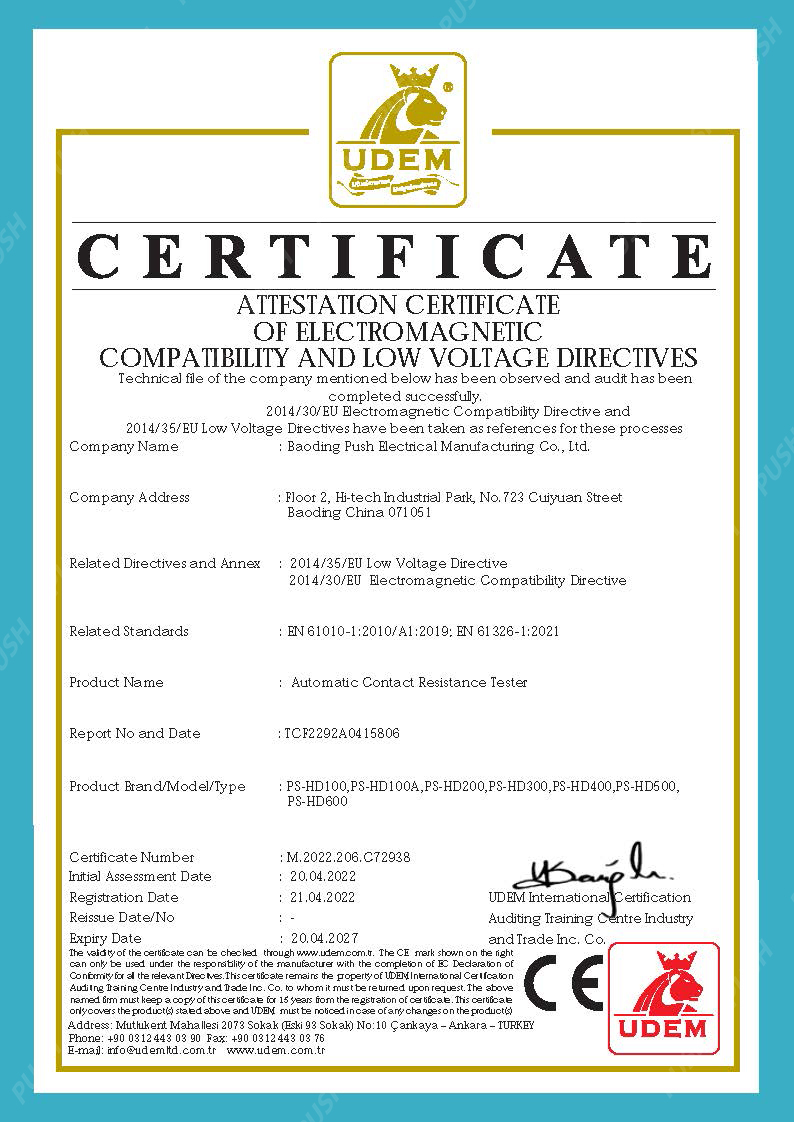 English
English


Transformer Oil Tester - Reliable Testing Solutions for Transformer Oil Quality
Understanding Transformer Oil Testers Essential Tools for Transformer Maintenance
Transformer oil testers play a vital role in the maintenance and management of electrical transformers, which are critical components in electrical power systems. The health of transformer oil is a significant indicator of the overall condition of a transformer. Regular testing of transformer oil can prevent costly failures and extend the lifespan of the equipment.
Transformer oil, also known as insulating oil, is used to insulate and cool transformers. Over time, this oil can degrade due to thermal aging, contamination, and the presence of by-products from the electrical operation of the transformer. These factors can lead to decreased insulation properties and increased risk of failure. Therefore, monitoring the condition of the oil is essential for ensuring the reliability and safety of transformer operations.
Transformer oil testers are specialized instruments designed to analyze various properties of transformer oil. These testers can assess several key parameters, including moisture content, acidity, dielectric strength, and the presence of dissolved gases. Each of these factors provides valuable insights into the condition of the transformer and the oil itself.
1. Moisture Content Excess moisture in transformer oil can significantly reduce its insulating properties, leading to potential electrical failures. Transformer oil testers can quickly measure the water content, helping maintenance personnel decide when oil purification or replacement is necessary.
transformer oil tester

2. Acidity The acidity level of transformer oil can indicate the degree of aging and oxidation. High acidity can lead to the formation of sludge, which can impair the functioning of the transformer. Regular testing for acidity allows for timely intervention.
3. Dielectric Strength This measurement is critical as it assesses the oil's ability to withstand electrical stress. A decrease in dielectric strength can signal contamination or degradation of the oil, which may necessitate corrective actions.
4. Dissolved Gases Analyzing the gases dissolved in transformer oil can reveal underlying issues such as overheating or electrical discharge. This analysis, often referred to as Dissolved Gas Analysis (DGA), is an essential diagnostic tool in predictive maintenance strategies.
In conclusion, transformer oil testers are indispensable tools for electrical utilities and maintenance teams. By regularly monitoring transformer oil quality, organizations can mitigate risks associated with transformer failures, ensure operational efficiency, and enhance the reliability of power delivery systems. Investing in effective oil testing not only supports the longevity of transformers but also contributes to overall grid stability, making these devices critical in modern electrical infrastructure management. Regular testing and proactive maintenance strategies ultimately safeguard electrical assets and uphold the continuity of power supply in our communities.
-
Differences between open cup flash point tester and closed cup flash point testerNewsOct.31,2024
-
The Reliable Load Tap ChangerNewsOct.23,2024
-
The Essential Guide to Hipot TestersNewsOct.23,2024
-
The Digital Insulation TesterNewsOct.23,2024
-
The Best Earth Loop Impedance Tester for SaleNewsOct.23,2024
-
Tan Delta Tester--The Essential Tool for Electrical Insulation TestingNewsOct.23,2024





